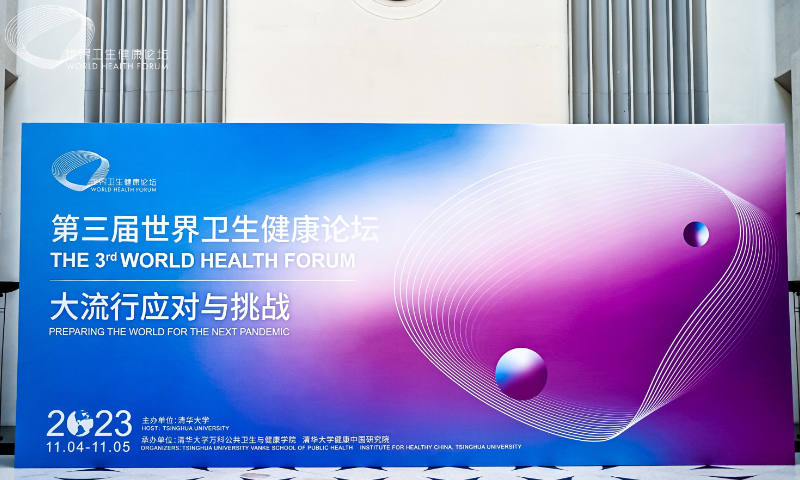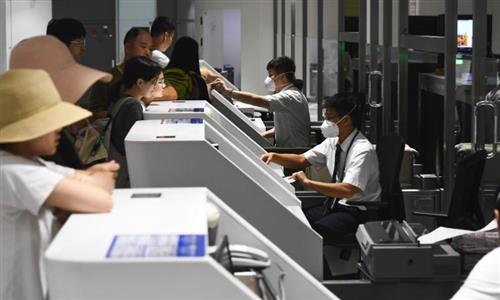Experts advocate international coordination for pandemic preparedness at the third World Health Forum

Photo: Courtesy of Tsinghua University
Experts emphasized the need for an enhanced system, advanced technology and a more equitable global mechanism in preparation for the next pandemic during the third World Health Forum hosted by Tsinghua university.
The forum, held from November 4 to 5, was themed on "Preparing the World for the Next Pandemic." During the event, 150 renowned scholars, representatives from international organizations and non-governmental organizations, and experts from think tanks discussed lessons learned from managing the COVID-19 pandemic, different approaches to international coordination and innovative public health policies.
Sun Yang, deputy head of the national administration of disease prevention and control, shared China's experiences in managing the COVID-19 pandemic, stressing timely adjustment in management measures, strong medical support system and basic-level management.
According to Sun, China has established the world's largest infectious disease epidemic reporting system, which has covered 83,000 medical and health institutions at all levels. With the support of this system, China have conducted real-time reporting of confirmed cases within 24 hours and synchronized collection of data on fever clinic visits from medical institutions. This enables the country to monitor confirmed, severe, and fatal cases in a timely manner, as well as quickly grasp the epidemiological characteristics such as time, space, and population.
Currently, the administration's 1,200 designated hospitals across the country are still closely monitoring influenza, COVID-19 and 13 other common respiratory pathogens every month. The monthly sequencing volume for the COVID-19 virus is approximately 10,000 samples, Sun said.
To prepare for the next pandemic, Sun called for improved disease prevention and control system, enhanced early-warning system, comprehensive plan and establishment of a global public health response mechanism.
Engaging in active discussions on pandemic response and challenges is not only a retrospective exercise but a means to chart a new course, leading us towards a future marked by improved preparedness, heightened resilience, and an unyielding dedication to equity, Margaret Chan, Founding Dean of the Vanke School of Public Health, said at the forum.
Facing the challenges that may be brought about by the pandemic, Chan believes that first we should build an adaptable and robust healthcare system to enhance the ability to respond to health crises; second, we should promote global cooperation, improve the global health governance framework, and pursue a fair and healthy world that "leaves no one behind"; the third thing is to strengthen the power of scientific and technological innovation and give full play to its role in improving monitoring systems and improving accuracy.
Liang Wannian, executive vice-dean of Vanke School of Public Health, Tsinghua University, emphasized the importance of international cooperation in addressing several deficiencies in the world's current pandemic preparedness, which include a limited understanding of pathogens, challenges in achieving breakthroughs in key vaccine and medicine research and development technologies, disparities in technology distribution, and incomplete management systems.


